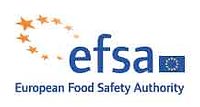FoodChain ID licenses Battelle prediction tool to identify and prevent food fraud risks

Company: FoodChain ID
Website: www.foodchainid.com
Technology Snapshot: Melamine found in baby formula and pet food killing babies and pets. Asian catfish sold as grouper. Wood pulp in shredded Parmesan cheese. Pomegranate juice cut with grape juice. These are examples of food fraud, more formally known as economically motivated adulteration (EMA), an established threat to grocery manufacturers and food consumers.
To combat this issue, FoodChain ID licensed technology from Battelle to fight food fraud using EMAlert, a food fraud prediction tool using artificial intelligence to identify potential hazards in the global food supply chain.
Newly added enhancements to the EMAlert intuitive software tool, combined with integrating data from FoodChain’s Food Fraud Database, enable food manufacturers to rapidly analyze and understand potential food fraud vulnerabilities in their supply chain. The approach mirrors a predictive analytic tool Battelle developed for the U.S. Department of Homeland Security.
“Knowing where potential hazards lurk allows food manufacturers to focus their mitigation efforts,” said FoodChain ID Senior Vice President, Managed Services, Kevin Kenny, J.D., LL.M. “The combined solution with our Food Fraud Database provides an effective and efficient view of current and future threats, leveraged through knowledge of past incidents.”
Food fraud prevention requires reviewing various data sources and information, including known fraud events, supply chain characteristics, economic and pricing information, the availability of authenticity methods, and geopolitical conditions in source countries. Developed to allow the simultaneous evaluation and tracking of these factors over time, EMAlert is a powerful tool in fighting food fraud. EMAlert provides quantitative estimates of an organization’s vulnerability to EMA for various commodities.
“This is an issue that compromises the integrity of the food supply chain and results in lost consumer trust,” said Joe Berger, senior vice president of Battelle’s commercial business. “Rapidly assessing and understanding EMA vulnerabilities with EMAlert enables mitigation actions to be prioritized and pursued and is essential to protecting both public health and brand reputation.”
FoodChain ID’s Food Fraud Database is a continuously updated collection of thousands of ingredients, and related records gathered from scientific literature, media publications, regulatory reports, judicial records, and trade associations from around the world dating back many years. The database identifies trends and vulnerabilities through a customizable dashboard, powerful search capabilities, and automated analytics.
EMAlert, combined with the Food Fraud Database, provides food safety professionals with an opportunity to identify potential hazards so they can prepare alternative strategies. Those alternatives could include identifying suppliers from a more favorable region of the world or investing in research to develop identity tests for targeted commodities.
Looking for a reprint of this article?
From high-res PDFs to custom plaques, order your copy today!






